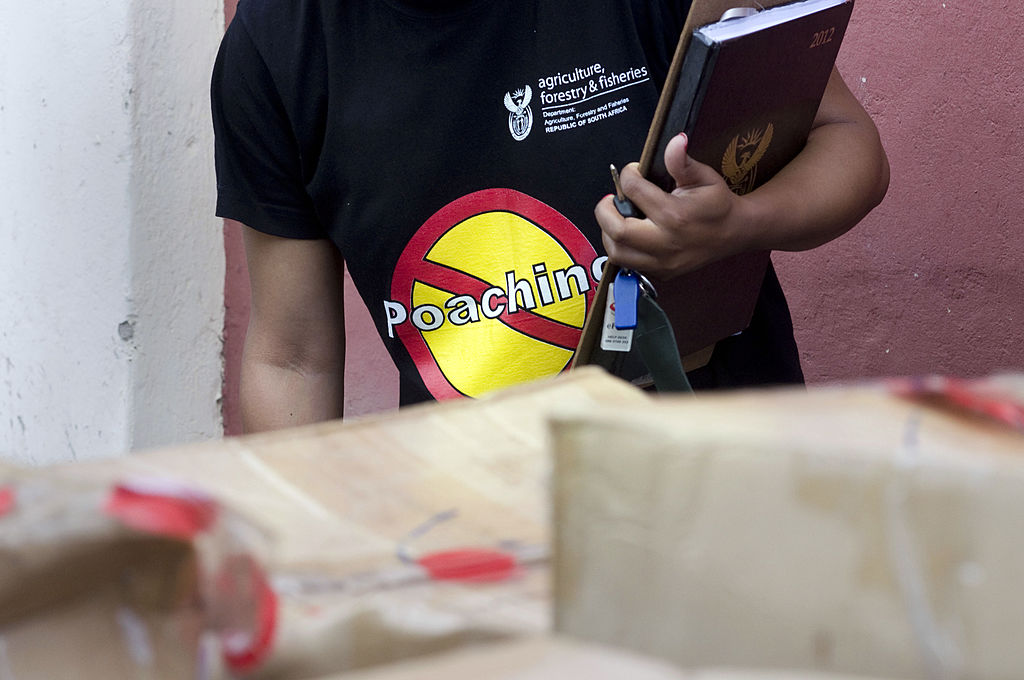ADF STAFF
A suspicious vehicle was driving through the streets of Durban, South Africa, around 3:45 a.m. with water leaking out of the back.
When police pulled over the red Toyota Condor they found eight bags of shelled abalone worth about R500,000 (just more than $29,100), South African newspaper Daily Maverick reported. The driver was arrested as it is illegal to harvest abalone without a permit under South African law.
The mid-January incident is common in South Africa, where abalone poaching is often controlled by gangs and linked to the devastating spread of crystal methamphetamine and other drugs.
The country has been the global hotspot for abalone poaching since the 1990s and is linked to gang murders, corruption and “the criminalization of marginalized communities,” according to a Global Initiative Against Transnational Organized Crime report. Rampant poaching of what is known locally as “white gold” has decimated local populations of the sea snails.
More than 2,000 tons of abalone are poached each year along the South African coastline. The country’s illicit abalone trade is worth an estimated $60 million to $120 million per year.
The trade “is largely controlled by Chinese criminal groups, who source their product from local gangs operating in fishing settlements close to known poaching sites,” the Wildlife Justice Commission reported in 2021.
“The abalone is typically dried in illegal processing facilities in South Africa, before being transported across the border by truck into Namibia, Zimbabwe or Mozambique, with abalone hidden in false compartments or among boxes of other products, such as dried fruit, from where it is exported to Hong Kong,” the report said.
In China, the large gastropod mollusks have been a delicacy for centuries. According to the commission, more than 96 million South African abalone were estimated to have been poached from 2006 to 2016, with 90% of them shipped to Hong Kong.
“Abalone is one of the most prized items in Cantonese cuisine — a must-have on celebratory banquet menus,” said Wilson Lau, author of an assessment on South African abalone by TRAFFIC, a non-governmental organization that examines the global wild animal and plant trade. “Unfortunately, if it’s dried abalone from South Africa, it may have been poached and trafficked, meaning consumers run the risk of unwittingly supporting organized crime.”
Quoted on TRAFFIC’s website, Lau added that abalone is especially popular during the Chinese New Year.
Once poached abalone arrives in Hong Kong, it can be openly traded and sold in markets alongside legally sourced abalone.
“South African abalone is not protected in Hong Kong law, meaning that there is no course of legal or enforcement action available to block the sale of poached abalone once the product reaches the market,” Markus Burgener, TRAFFIC’s senior program officer, said on the website. “This could be easily resolved with a CITES [the Convention on International Trade in Endangered Species of Wild Fauna and Flora] listing.”|
CITES is an international agreement meant to ensure that international trade in animals and plants does not threaten their survival.
Other TRAFFIC recommendations to reduce abalone poaching include working with industry to support the trade in legally sourced South African abalone, implementing methods for strengthening law enforcement, improving traceability, and raising public awareness about the species and illicit trade.

